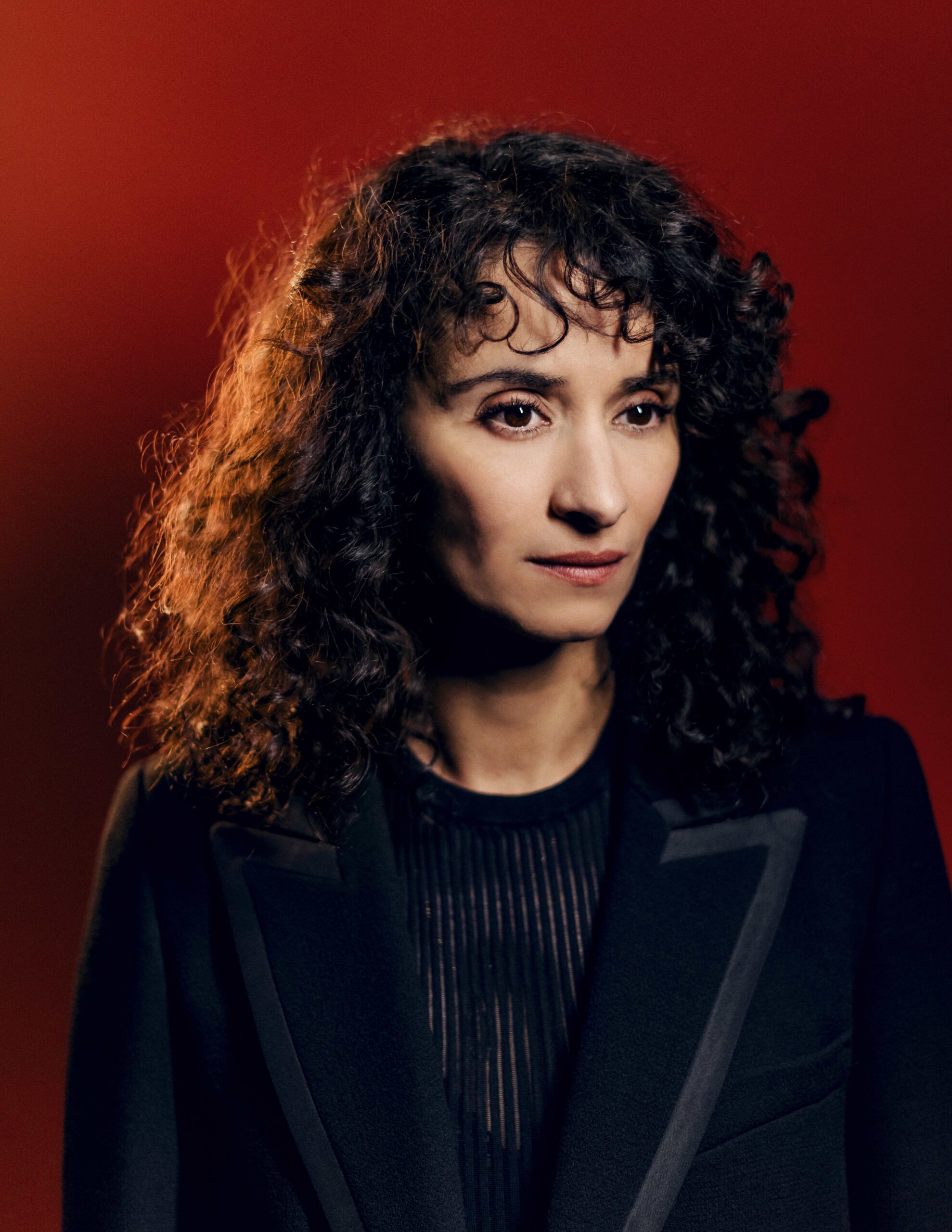The actress has written her first book, Kaddour. It’s the story of six days of mourning, from the news of her father’s death to his burial, during which she recalls all she knows about his childhood in Algeria, working in the fields, and all those years criss-crossing France as a delivery driver… A portrait that gives flesh to all these men often reduced to their condition as immigrant workers. Poignant…
How did the death of your father inspire you to write Kaddour?
I don’t think there was, strictly speaking, a genesis for this book. A few months after my father’s death, I felt a compelling need to expel something. It was a deeply physical sensation. Without any ulterior motive, I opened my computer, started writing and didn’t stop…
Didn’t you have anything premeditated?
No. My first sentence was: ‘Saturday 15 August 2020 is not a day to die. This was followed by nine months of gestation for this book, which was actually quite fluid, during which a division into six days and six acts very quickly became apparent. I realised straight away that I wanted to start with the announcement of my father’s death and go right through to his funeral, that recounting the day-to-day life of those six days would allow me to move back and forth between the present and the past, and that in this way I would be able to write about my relationship with this man and, above all, delve into the trajectory that was his.
In this quest, Annie Ernaux’s La place guided you… In what way?
This book shaped me. For the first time, at the age of 23, I was confronted with a literary work that spoke of my father. When he died, I felt the need to reread it, as if through it I could reconnect with him. And then, when Annie Ernaux won the Nobel Prize for Literature, I was invited to read an extract from it on La Grande Librairie with her. Nobody knew then that I had started writing Kaddour. I was very moved. In my opinion, Annie Ernaux is without doubt the writer in France who has most succeeded in bringing people together beyond her own chapel. Around her circulate all ages, all identities, all genders…
Nobody knew you were writing a book?
I myself was very surprised by this gesture, I would even say by this transgression. For me, literature is perhaps the most precious thing in the world. I can’t do without it. It touches on the sacred. So writing was simply not for me. I didn’t have the right and, a priori, the ability to transgress this absolute, my absolute.
And yet you did it: Kaddour tells the story of your father and, beyond him, of all those uprooted men whom you so touchingly describe as ‘the blind spot of France’. What do you mean by this?
While I found many echoes of my own situation and history in Anglo-Saxon literature, it’s sad to say that books in France have shown very little interest, especially recently, in the stories of Algerian migrants, or indeed in those of other displaced persons such as Poles, Portuguese, Italians, Spaniards, sub-Saharans, etc. And yet the Algerian war affected, directly or indirectly, one in three French people. With the exception of a few works such as Alice Zeniter’s magnificent L’art de perdre, this issue has not entered the field of literature. Only sociology has tackled it. In fact, although I didn’t always anticipate it, I think it was important that the portrait of my father should be as finely chiselled as possible, in terms of both content and form, and that it should allow me to tell the story of all those forgotten people, to give them substance.
You were talking about form. You have chosen to address your father on a first-name basis. Why did you make this choice?
Again, nothing premeditated… The use of ‘tu’ came naturally. There are so many pieces missing from the jigsaw puzzle of his life that addressing him in this way was, I think, a way of summoning him, of calling him out. Even if, once again, I won’t have any answers…
Don’t get me wrong: although your father was very modest, sometimes stingy with words, he was also very facetious… Is that what this book is about too? To emphasise the singularity of this man beyond the collective narrative?
Exactly. There was obviously this desire. To paint a portrait of someone is to address both the intimate and the universal, the dimension that allows everyone to find themselves in the story in question. The two are closely linked.
Then there were the ‘blanks’ to deal with…
Silences are inherent in all family histories. Those generations didn’t talk, whatever the background, I think. The proof is in all the testimonials I receive in the post. Men and women, not necessarily of Algerian origin, sons or daughters of Portuguese, Italians, Spaniards…, write to me to confide in me: they recognise themselves in my story. The same goes for the meetings and book signings organised here and there. I meet people of all sexes, all ages, all colours… In a word, all of France! I’m delighted to see that this book brings together all humanities. It’s extra-extraordinary!
Are you ready to start writing again?
Yes. I already did. When I finished Kaddour, I was going round in circles. That book had become my daily exercise. I felt a great emptiness. So much so that I decided not to wait for replies from the two publishers to whom I had sent my manuscript before getting back to work. A novel, in this case. Without my father, I would probably never have written. He gave me this ultimate gift. It’s a real joy. I don’t know where I’m going, but I’m rubbing shoulders, I’m banging my head against it, I’m no longer dependent on anyone… I love it.

